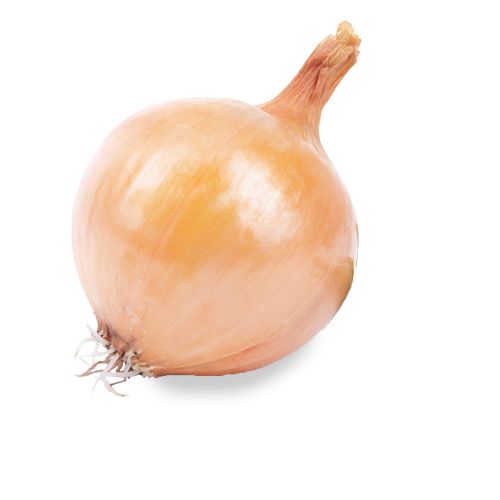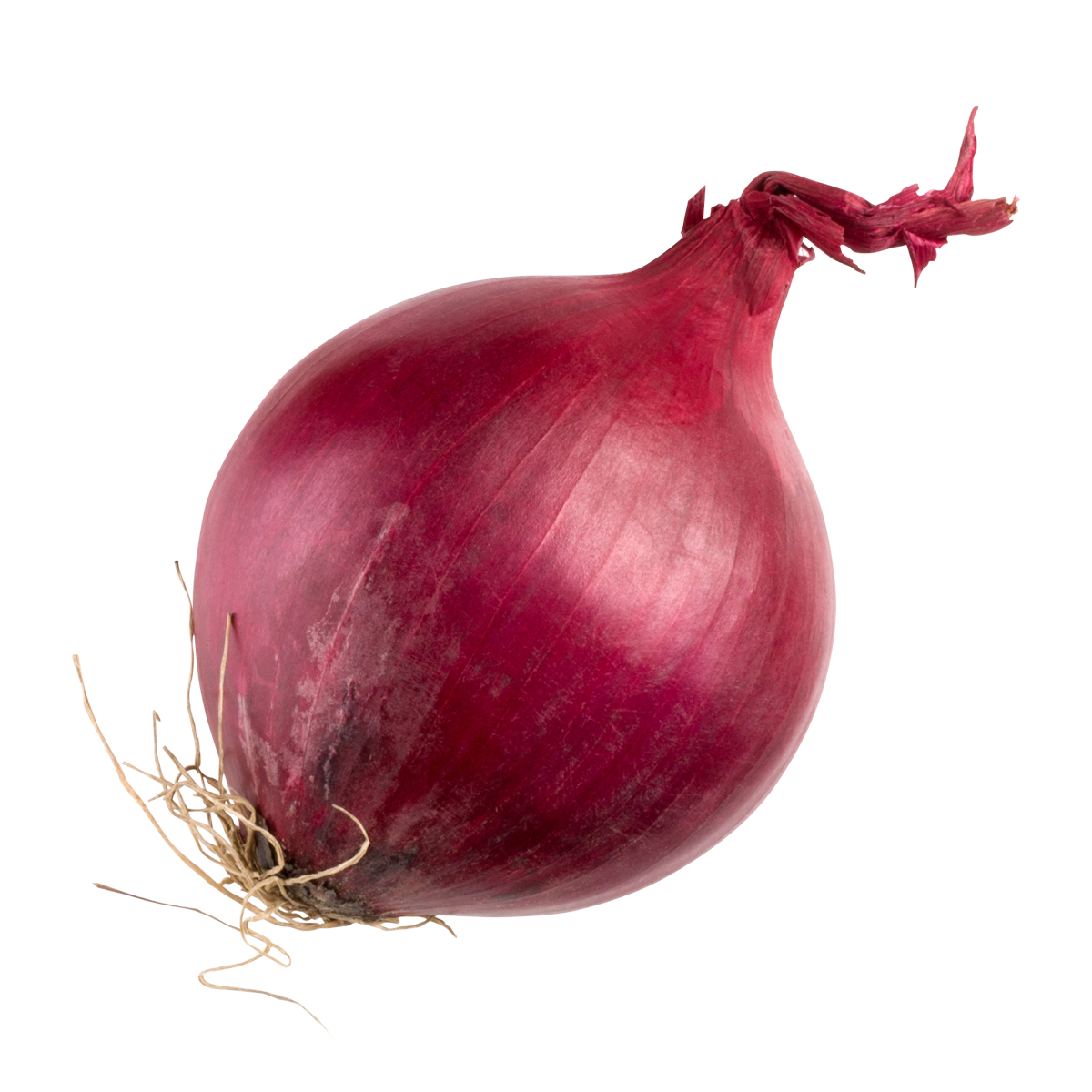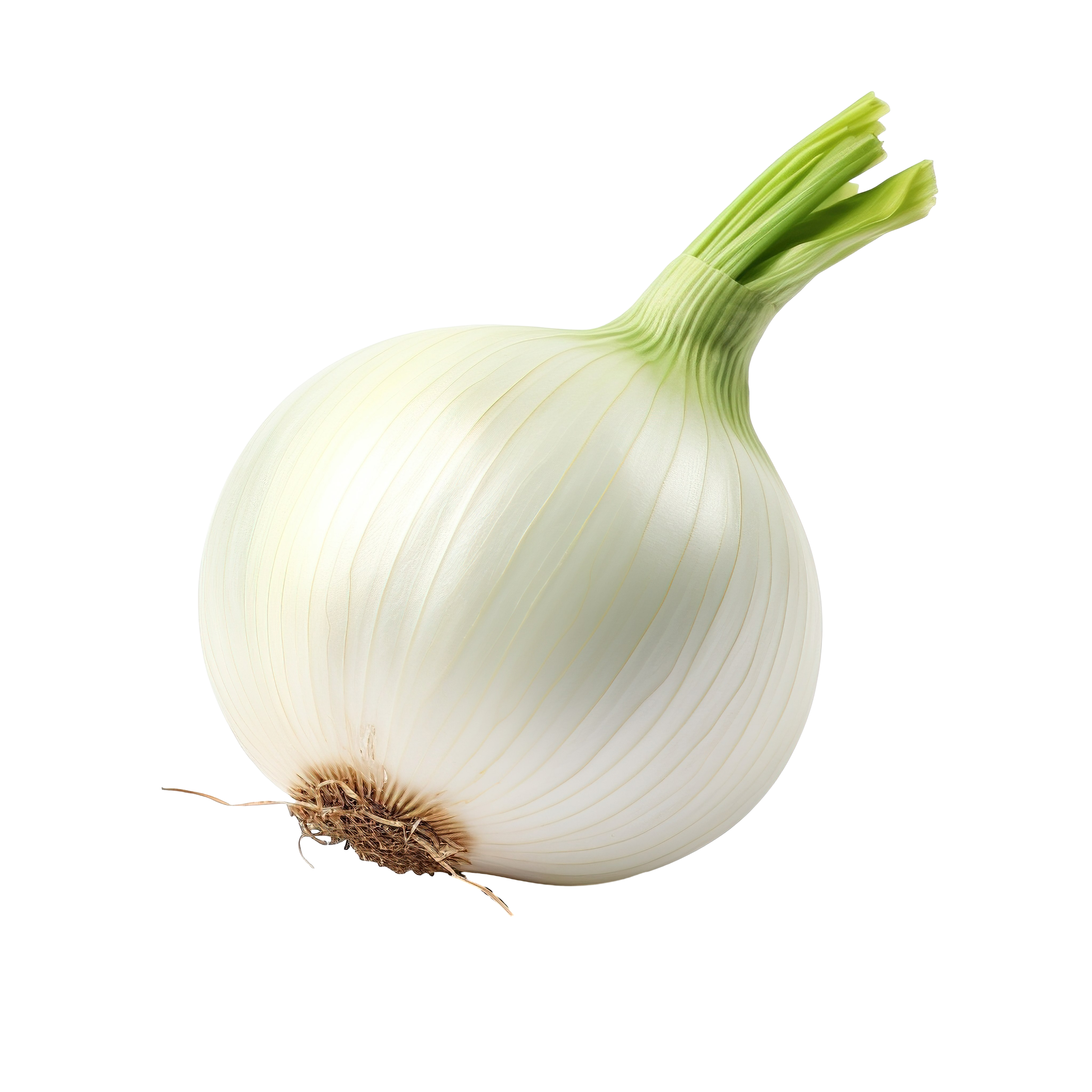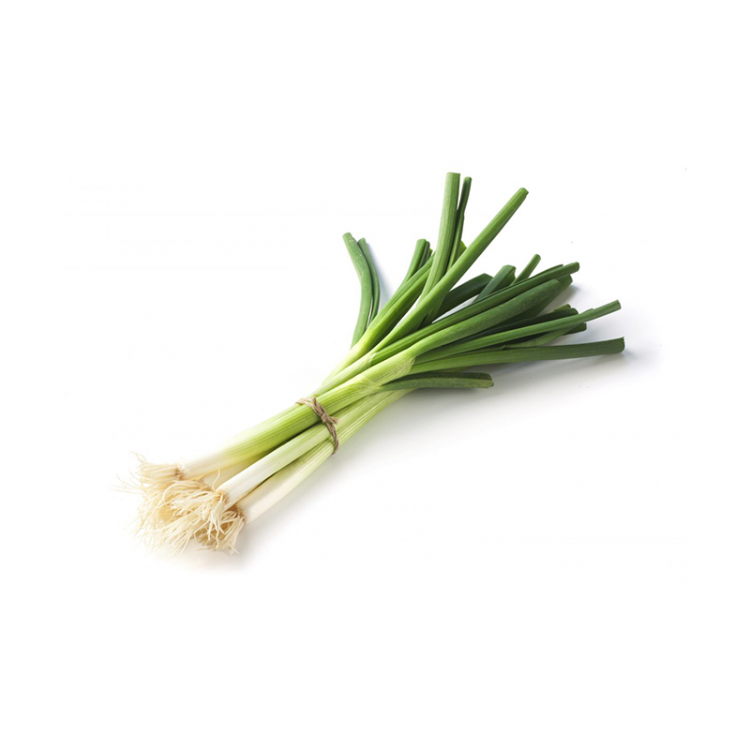Onions
27 September 2024
= What are onions ? =
Onions (Allium cepa) are vegetables in the Alliaceae family, which also includes garlic, shallots and leeks. Thanks to their versatility and their many varieties, onions are an indispensable ingredient in our kitchens. Whether you use them raw or cooked, in salads or simmered dishes, they will always add an incomparable touch of flavour to your recipes.
Consumers appreciate onions not only for their subtle flavour, but also for their many health benefits. Grown and eaten all over the world, they have become a staple ingredient in many cuisines.
= Origins and history of onions =
Onions originated in Central Asia. They have been domesticated for thousands of years, with archaeological evidence of their cultivation in Egypt dating back to 3500 BC. The Egyptians used onions extensively both as a food and for medicinal purposes. In ancient Egypt, the onion was even a symbol of eternity, due to its layered structure.
Over the centuries, the onion spread throughout the world thanks to trade and migration, becoming one of the most widely grown and consumed vegetables in the world. Today, it plays a central role in the cuisines of Asia, Europe, Africa and America.
= Where and when are onions harvested? =
Onions are grown in many parts of the world, but prefer temperate climates. They are generally harvested in summer, although the growing season can vary depending on the variety and climatic conditions. In France, for example, harvesting often starts in June and can last until September.
Onions grow best in well-drained, nutrient-rich soil in full sun. It can be sown directly into the soil or planted from bulbs. After about four to six months of growth, depending on the variety, the stalks begin to wilt, indicating that harvesting is imminent.
nions are harvested when the green leaves begin to turn yellow and lie on the ground. Once they have been removed from the ground, the onions are left to dry in the open air for a few days. This process, known as ‘curing’, allows the outer skin to harden and protects the bulb, ensuring better preservation.
= The different types of onion =
- Yellow onion

This is the most common and versatile. Yellow onions are ideal for prolonged cooking, as they develop a mild sweet flavour as they caramelise. Yellow onions are the main ingredient in onion soup, but they can also be used in stews and sauces.
- Red onion

Recognisable by its purple colour, the red onion is often eaten raw in salads or pickled. It has a milder, less pungent flavour than other varieties, making it ideal for cold dishes or as a garnish.
- White onion

White onions are milder and crunchier than yellow onions. It is often used in Mexican cuisine or in dishes where rapid cooking is required. Its crunchy texture makes it an excellent choice for salsas and fresh dishes.
- Spring onion

Spring onions are young onions harvested before the bulb is fully formed. More delicate and sweeter than ripe onions, it is often used to enhance hot or cold dishes.
= Our onions: sizes and conditioning =
The origins of our onions depend on the type of onion. Most of them come from Poland, but our blanched onions can also come from France. Spring onions, on the other hand, are imported.
Frozen pre-fried and grilled onions: available in 10×10 mm or 20×20 mm cubes, as well as minced, they’re perfect for quick preparations. We pack onions in octobins or in 10 kg bulk cartons, to meet all your needs for large quantities.
Frozen yellow onions : Available in a variety of sizes, such as 4×4 mm, 6×6 mm, 10×10 mm and 20×20 mm cubes, or in minced form. You’ll also find spring onions in sizes of 14/16 mm, 16/18 mm and 18/21 mm. For those who prefer organic products, a certified version is also available. Available in 20 kg bags or 10 kg bulk cartons.
Frozen red onions : We offer frozen red onions in 6×6 mm or 10×10 mm cubes, as well as sliced versions, packed in octobin, 20 kg blue plastic bags or 10 kg bulk cartons, depending on your requirements.
Frozen spring onions : These spring onions are available in tubular form or with a diameter of between 6 and 12 mm, and a length of 3 to 4 mm. We also pack frozen spring onions in 10 kg bulk cartons, for optimised storage and transport.
Would you like more information about our products?
